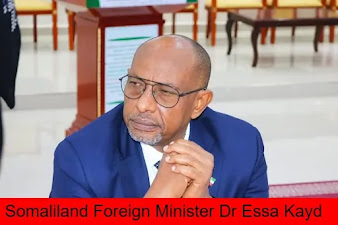Somalia was without a formal parliament for more than two decades after the overthrow of President Siad Barre in 1991.
The decades of fighting between rival warlords meant that the country was ill-equipped to deal with natural disasters such as drought, and around half a million people died in the Somali famines of 1992 and 2010-12.
Comprised of a former British protectorate and an Italian colony, Somalia was created in 1960 when the two territories merged. Since then its development has been slow. Relations with neighbors have been soured by its territorial claims on Somali-inhabited areas of Ethiopia, Kenya and Djibouti.
In 1970 Mr. Barre proclaimed a socialist state, paving the way for close relations with the USSR. In 1977, with the help of Soviet arms, Somalia attempted to seize the Ogaden region of Ethiopia, but was defeated thanks to Soviet and Cuban backing for Ethiopia, which had turned Marxist.
In 1991 President Barre was overthrown by opposing clans. But they failed to agree on a replacement and plunged the country into lawlessness and clan warfare.
In 2000 clan elders and other senior
figures appointed Abdulkassim Salat Hassan president at a conference in
Djibouti. A transitional government was set up, with the aim of reconciling
warring militias.
But as its mandate drew to a close,
the administration had made little progress in uniting the country.
In 2004, after protracted talks in
Kenya, the main warlords and politicians signed a deal to set up a new
parliament, which later appointed a president.
The fledgling administration, the
14th attempt to establish a government since 1991, faced a formidable task in
its efforts to bring reconciliation to a country divided into clan fiefdoms.
Islamist
insurgency
Its authority was further
compromised in 2006 by the rise of Islamists who gained control of much of the
south, including the capital, after their militias kicked out the warlords who
had ruled the roost for 15 years.
With the backing of Ethiopian
troops, forces loyal to the interim administration seized control from the
Islamists at the end of 2006.
Islamist insurgents - including the
Al-Shabab group, which later declared allegiance to al-Qaeda and in 2012
announced its merger with the global Islamist terrorist group - fought back
against the government and Ethiopian forces, regaining control of most of
southern Somalia by late 2008.
Ethiopia pulled its troops out in
January 2009. Soon after, Al-Shabab fighters took control of Baidoa, formerly a
key stronghold of the transitional government.
Somalia's parliament met in
neighbouring Djibouti in late January and swore in 149 new members from the
main opposition movement, the Alliance for the Re-Liberation of Somalia.
The parliament also extended the
mandate of the transitional federal government for another two years, and
installed moderate Islamist Sheikh Sharif Sheikh Ahmad as the new president.
However, the government's military
position weakened further, and in May 2009 Islamist insurgents launched an
attack on Mogadishu, prompting President Ahmad to appeal for help from abroad.
Al-Shabab consolidated its position
as the most powerful insurgent group by driving its main rival, Hizbul Islam,
out of the southern port city of Kismayo in October 2009.
But al-Shabab was wrongfooted by a
series of government and African peacekeeper offensives and a Kenyan army
incursion in 2011. They withdrew from Mogadishu in August 2011, the port of
Baidoa in February, the key town of Afgoye in May and the port of Merca in
August, and lost their last urban stronghold - the major southern port of
Kismayo - in October 2012, along with the major inland town of Wanla Weyn.
In a sign of growing confidence,
Somalia's first formal parliament in more than 20 years was sworn in at
Mogadishu airport, marking an end to the eight-year transitional period.
Parliament chose Hassan Sheikh
Mohamud, an academic and civic activist with little political experience, as
president in September 2012. He in turn appointed an economist and businessman,
Abdi Farah Shirdon Saaid, prime minister with a brief to stamp out nepotism and
clan rivalry.
Piracy
The long-standing absence of
authority in the country led to Somali pirates becoming a major threat to
international shipping in the area, and prompted Nato to take the lead in an
anti-piracy operation. International efforts were seen to bear fruit in 2012,
when pirate attacks dropped sharply.
In 2011, the plight of the Somali
people was exacerbated by the worst drought in six decades, which left millions
of people on the verge of starvation and caused tens of thousands to flee to
Kenya and Ethiopia in search of food.
After the collapse of the Siad Barre
regime in 1991, the north-west part of Somalia unilaterally declared itself the
independent Republic of Somaliland. The territory, whose independence is not recognised
by international bodies, has enjoyed relative stability




Comments
Post a Comment